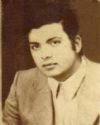|
ESL Forum:
Techniques and methods
in Language Teaching
Games, activities
and teaching ideas
Grammar and
Linguistics
Teaching material
Concerning
worksheets
Concerning
powerpoints
Concerning online
exercises
Make suggestions,
report errors
Ask for help
Message board
|
ESL forum >
Grammar and Linguistics > Grammar Question
Grammar Question
|

sally259

|
Grammar Question
|
|
Please could somebody explain the following to me? Thank you.
1. The cinema has been open since 1950.
2. The cinema was opened in 1950.
Why doesn �t �open � finish with -ed as the past participle in 1, but it does in 2. I know the second sentence is a passive sentence but what is the first? Thank you for any replies.
|
10 Apr 2012
|
|
|
|

mododdou

|
|
the first "open" is an adjective while the second "opened" is a past participle.cheers |
10 Apr 2012
|
|
|

olgavillanua

|
Hi Sally!
In the second example -opened- is the past participle of a passive sentence whereas in the first one -open- is just an adjective.
I hope my explanation makes it clearer for you.
|
10 Apr 2012
|
|
|

monicablt

|
Yes, that �s right !1st sentence is active : present perfect of "to be" + open (adjective), meaning that the cinema opened in 1950 and it has been so since 1950 (i.e. it �s still open)
2nd sentence is passive, but for the verb "open" active voice can be used with no difference in meaning, which stays passive anyway:
The cinema was opened in 1950 = The cinema opened in 1950
|
10 Apr 2012
|
|
|

ironik

|
|
the verb- to open, is an action verb and happens only once, that �s why we can �t say "The cinema has been opened since 1950." It �s completely wrong.
However, we can say "it has been open since 1950", because it refers to a continuous state.
Also, when you say "the cinema was opened in 1950", you can expect such a sentence afterwards: "..and it was closed in 1990." You can �t do that for the present perfect sentence.
I hope this and the other explanations has been helpful  |
10 Apr 2012
|
|
|
|
|

sally259

|
|
Thank you all for your answers. They have helped me a lot. |
11 Apr 2012
|
|
|